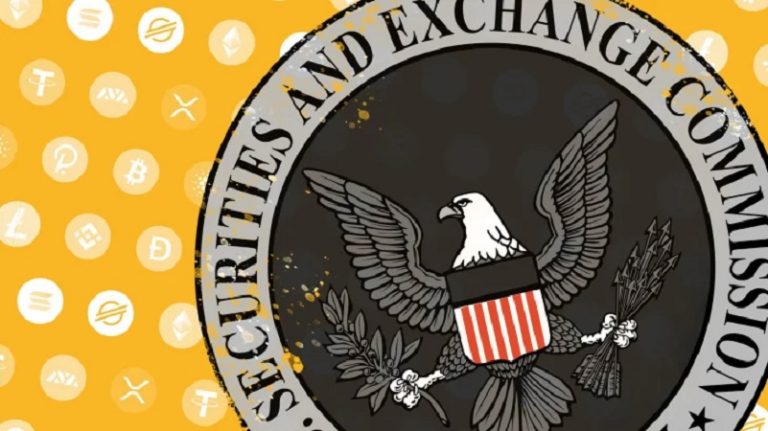
U.S. Securities and Exchange Commission (SEC) is considering a conditional exemption to facilitate the trading of tokenized securities on blockchain platforms, aiming to balance innovation with investor protection. This initiative, led by the SEC’s Crypto Task Force, would allow qualified firms to issue, trade, and settle securities using distributed ledger technology (DLT) without needing to register as broker-dealers, clearing agencies, or exchanges under traditional SEC frameworks.
The exemption seeks to address current regulatory barriers, such as those in Regulation National Market System, which require lengthy and costly compliance processes that deter firms from entering the tokenized securities space. Firms benefiting from this exemption would still need to comply with anti-fraud and market manipulation rules, maintain adequate capital, and provide disclosures about platform operations, wallet and custody arrangements, and blockchain-specific risks.
The SEC is also exploring a regulatory “sandbox” to let crypto exchanges experiment with tokenized securities in a controlled environment, drawing inspiration from frameworks in countries like the UK and Colombia. This sandbox could enable platforms like Coinbase to test tokenized securities trading before formal rules are established.
Register for Tekedia Mini-MBA edition 19 (Feb 9 – May 2, 2026).
Register for Tekedia AI in Business Masterclass.
Join Tekedia Capital Syndicate and co-invest in great global startups.
Register for Tekedia AI Lab.
Commissioner Hester Peirce has emphasized that this is a work-in-progress, welcoming feedback from market participants to create a commercially feasible approach. The shift in the SEC’s stance, particularly under new leadership since April 2025, reflects a narrower view of its jurisdiction over digital assets, with recent guidance stating that memecoins and stablecoins used for payments may not qualify as securities.
This development could accelerate blockchain-based trading, enhance U.S. competitiveness in the global crypto market, and democratize access to high-value assets through fractional ownership, though concerns remain about regulatory arbitrage and investor protection. By reducing regulatory barriers, the exemptions could spur more companies to tokenize securities (e.g., stocks, bonds, real estate) on blockchain platforms, leveraging D benefits like transparency, efficiency, and fractional ownership.
The U.S. could strengthen its position in the global blockchain market, competing with jurisdictions like Singapore and the EU, which already have crypto-friendly frameworks. Tokenization could democratize access to high-value assets, enabling retail investors to own fractions of assets like real estate or private equity. The SEC’s regulatory sandbox allows controlled experimentation, potentially leading to permanent, tailored rules for tokenized securities.
Exemptions from broker-dealer and exchange registration lower costs and complexity, encouraging more platforms to enter the market. Firms must still comply with anti-fraud, capital adequacy, and disclosure rules, balancing innovation with safeguards. Firms might exploit loopholes, moving operations to less-regulated jurisdictions while targeting U.S. investors.
Blockchain-specific risks (e.g., smart contract vulnerabilities, custody issues) could expose investors to new forms of fraud or loss. Without robust oversight, tokenized securities could be prone to pump-and-dump schemes or insider trading on decentralized platforms. Broker-dealers and exchanges may face competition from blockchain platforms, pushing them to adopt DLT or risk obsolescence.
Firms like Coinbase could expand tokenized securities trading, diversifying revenue beyond crypto spot trading. Tokenization could provide smaller firms with easier access to capital markets through tokenized offerings. The SEC’s exploration of tokenized securities exemptions has sparked a divide among stakeholders, reflecting differing priorities and concerns.
Crypto exchanges, blockchain startups, and pro-crypto investors view exemptions as a long-overdue step to legitimize and scale tokenized securities. They argue it fosters innovation, reduces costs, and aligns the U.S. with crypto hubs like Singapore and Dubai. Leaders like Coinbase’s Brian Armstrong and Commissioner Hester Peirce (“Crypto Mom”) champion this as a way to integrate blockchain into mainstream finance.
They warn that overly restrictive conditions (e.g., stringent disclosures) could stifle the benefits, pushing firms offshore. Traditional financial institutions and some SEC officials worry that exemptions could undermine investor protections and create systemic risks. They cite past crypto scams (e.g., FTX) as evidence of inadequate oversight.
Risks like custody failures, market manipulation, and regulatory arbitrage dominate their arguments. They fear tokenized securities could bypass existing safeguards like the Securities Act of 1933. They demand clear, enforceable rules before exemptions are finalized, emphasizing robust audits and compliance.
The issue reflects broader U.S. political divides. Progressive lawmakers advocate for strict oversight to protect retail investors, while pro-business factions (e.g., some Republicans) support deregulation to spur economic growth. The U.S. risks falling behind jurisdictions with established tokenized securities frameworks (e.g., EU’s DLT Pilot Regime). However, some argue the SEC’s cautious approach ensures stability, unlike less-regulated markets prone to volatility.
Countries like Colombia and Thailand are experimenting with tokenization sandboxes, potentially attracting U.S. firms if domestic rules remain stringent. The SEC’s sandbox could appease both sides by allowing innovation under controlled conditions, gathering data to inform permanent rules.
Ongoing feedback, as emphasized by Peirce, could align regulations with industry needs while addressing risks. Integrating tokenized securities with existing frameworks (e.g., ATS rules) could satisfy traditional finance while enabling blockchain adoption.
The exemptions signal a pivotal moment for U.S. crypto policy, but the divide underscores the challenge of balancing innovation, investor safety, and global competitiveness. The outcome will shape whether tokenized securities become a mainstream asset class or remain a niche experiment.



